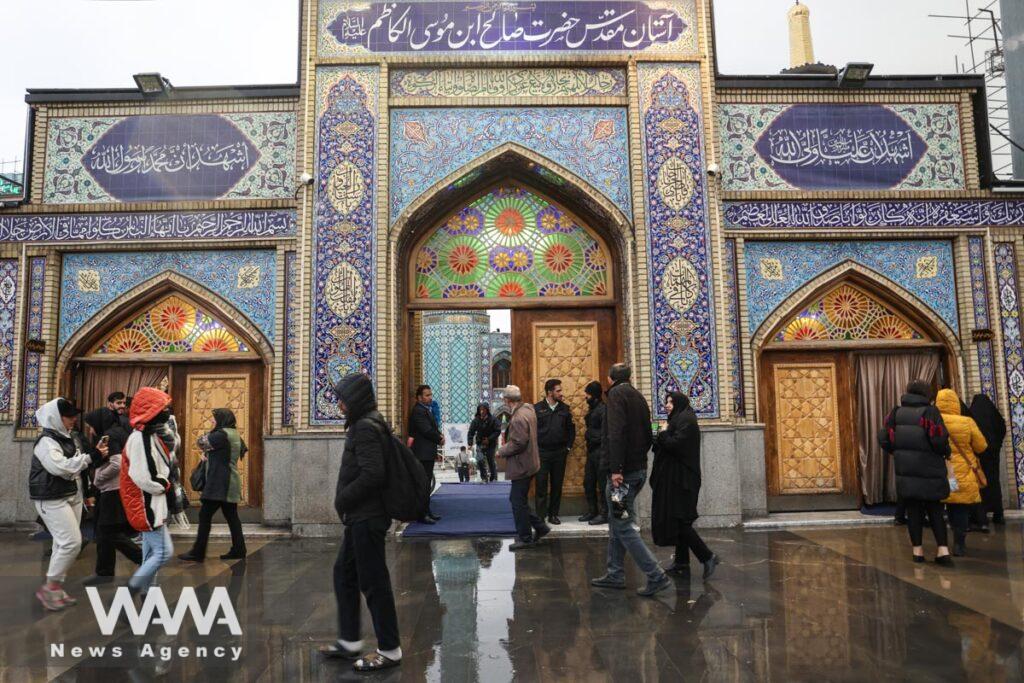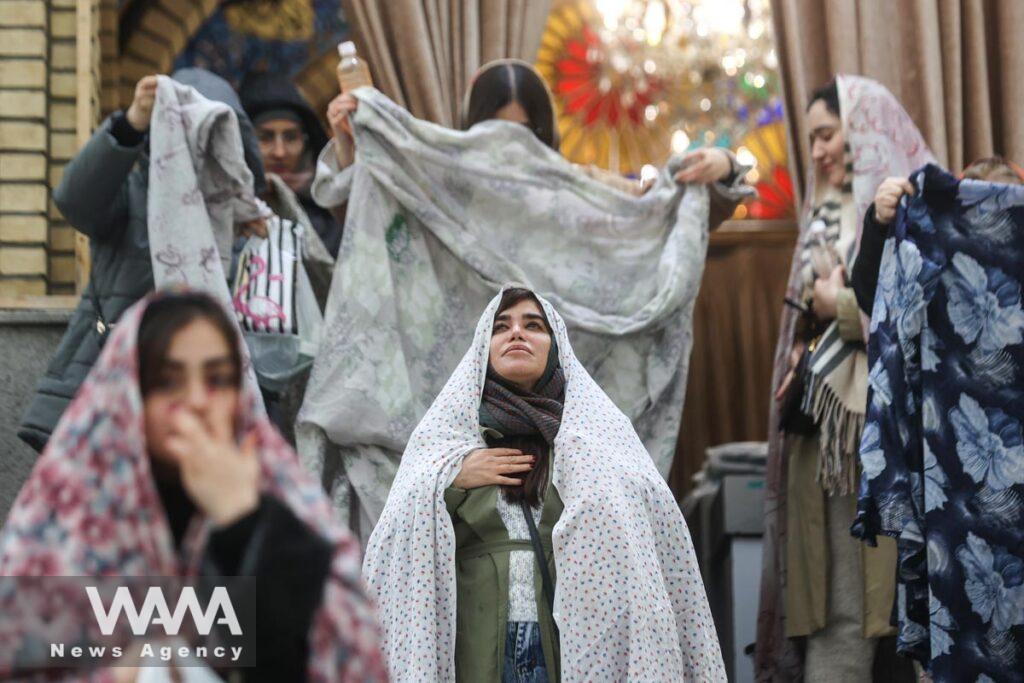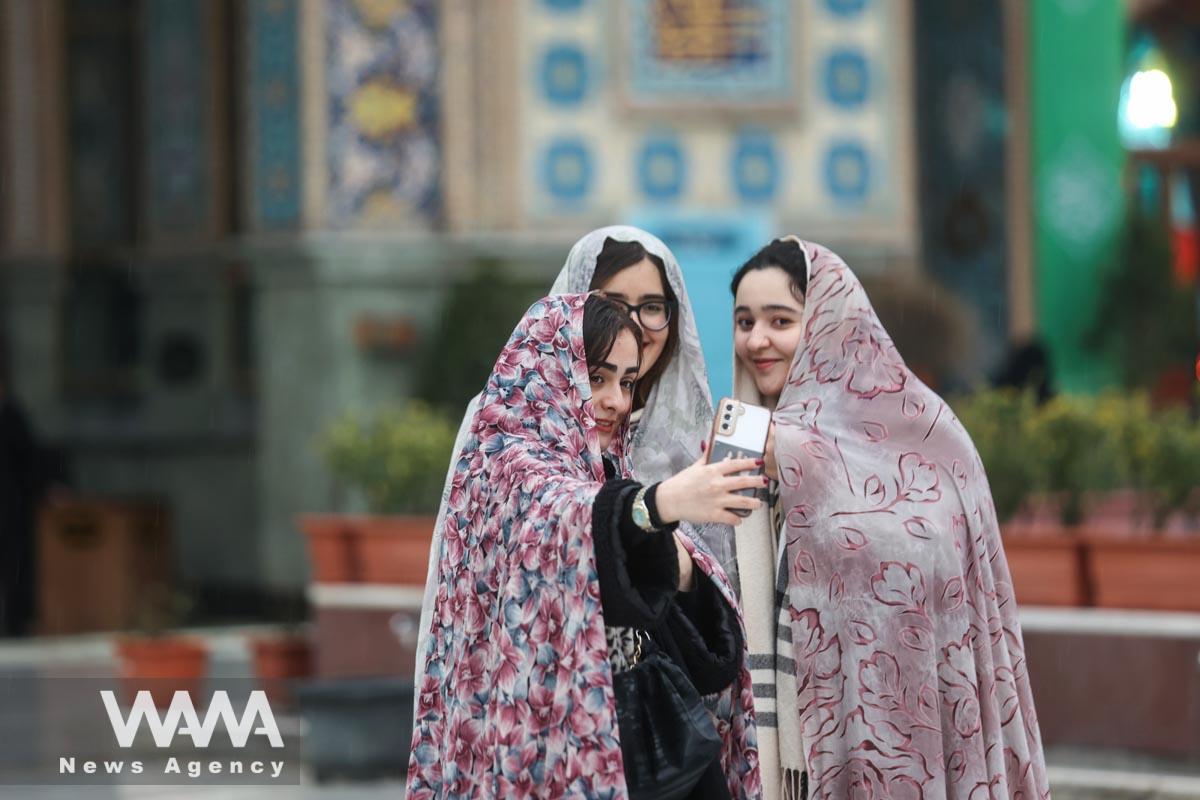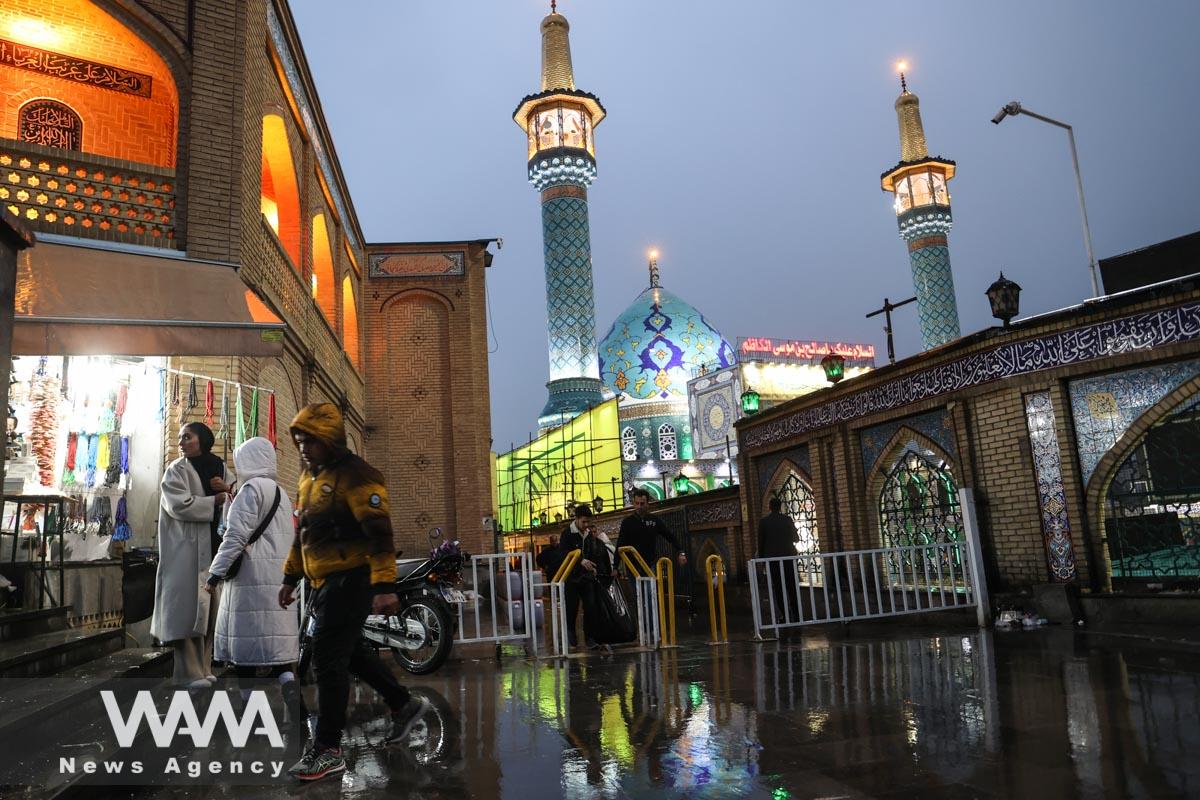Ramadan in Iran
WANA (MAR 12) – Ramadan in Iran started, and based on that, people are preparing for this period, and the spirit of it has spread throughout the city,
Ramadan is a revered month for the Muslim population. During this holy month, which follows the Islamic lunar calendar, Iranians engage in various spiritual and communal practices to observe fasting, prayer, and reflection.
As the sun sets, families break their fast with the evening meal called “iftar.” Traditional Iranian dishes, such as aash (a hearty soup) and Khoresh (stews), are often prepared for these special occasions.

People pass in front of the Imamzadeh Saleh shrine during the holy month of Ramadan in Tehran, Iran, March 11, 2024. Majid Asgaripour/WANA (West Asia News Agency)
The nights are dedicated to special prayers and the recitation of the Quran. Overall, Ramadan in Iran is a time of heightened spirituality, self-discipline, and communal solidarity.
In modern-day Iran, during the holy month of Ramadan, specific regulations impact the operations of cafes and restaurants to respect the community’s fasting observances.
In adherence to Islamic principles, many cafes and restaurants must adjust their operating hours to align with the fasting periods. This means that these establishments often remain closed or refrain from serving food and beverages during daylight hours when Muslims are fasting, and on the other hand, the city’s nightlife becomes stronger.

An Iranian woman prays in the Imamzadeh Saleh shrine during the holy month of Ramadan in Tehran, Iran, March 11, 2024. Majid Asgaripour/WANA (West Asia News Agency)
Today, WANA reporters talked to a young woman and asked her what this month and its traditions mean to her, and she said: “Fasting and praying are not for God actually, they’re for ourselves so that we can communicate with God and figure out who we are in this world and to find ourselves. ” Said Shahrzad, a praying girl in Imam Sleh Shrine of Tajrish
A young boy also told us how this month changes his daily meal routine but does not cost extra for families: “ It’s not a costly month. It’s like the other month. The only difference is that your meals in a day are consumed a little sooner and a bit later.” Said Mahdi while shopping and preparing for the first day of Ramadan.
WANA – S, Khezri














User comments